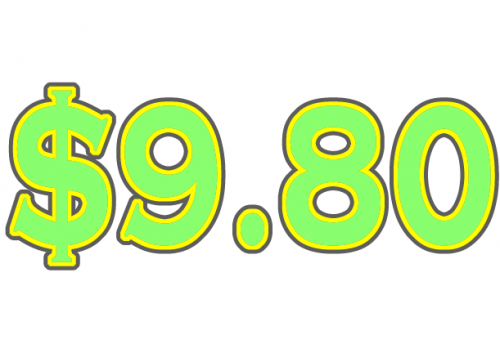Augmenting Minimum Wage to Narrow the Gap Between Classes
JACQUELYN LOI
Staff Writer
On July 26, 2012, Senator Tom Harkin introduced the Fair Minimum Wage Act in Congress to raise our current minimum wage, from $7.25 an hour to $9.80 an hour. According to Time for Raise, a project which promotes the needs of the citizen-consumer, 28 million people are currently working at minimum wage across the U.S., and a full-time worker only makes $15,080 a year on minimum wage. This higher income can also foster greater consumer spending, which helps the economy. Therefore, increasing the minimum wage will benefit workers and the economy as well.
If the minimum wage were to be raised, more workers and their families would have the opportunity to get out of debt and poverty. The current minimum wage is not enough for necessities such as food, housing and health care. According to Learn Vest, a financial planning site, if a full-time worker is supporting a family of four on minimum wage, that family would be $7,000 below the poverty line.
Since workers would receive a higher income, they will have the luxury to purchase more things, which results in more consumer spending, significantly benefiting the economy.
A 2011 study by the Chicago Federal Reserve Bank revealed that every time a dollar is added to the hourly minimum wage, it results in an additional $2,800 yearly consumer spending for a worker’s household.
However, some economists have argue that by raising the minimum wage, it could lead to fewer job opportunities for young people. According to Forbes, within six months of the last minimum wage increase in 2009, 600,000 teens’ jobs disappeared.
If the Fair Minimum Wage Act were to pass, it may mean that companies will have to pay their lower wage employees more, but it does not mean that they will have to hire fewer workers; companies can raise prices in response.
For instance, according to the Washington Post, fast food restaurants just raise prices to their food items when wages are raised. Therefore, if the Fair Minimum Wage Act were to pass, it may not necessarily affect unemployment.
Raising the minimum wage significantly helps stimulate our economy as well as the workers. It gives workers and their families the chance to get out of debt and poverty as well as increasing consumer spending. Our economy is slowly recovering; however, to make things more efficient, the minimum wage should be raised.
